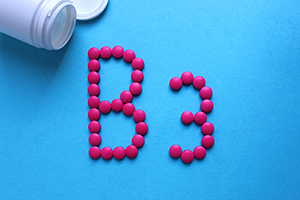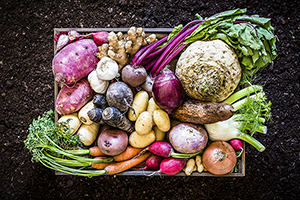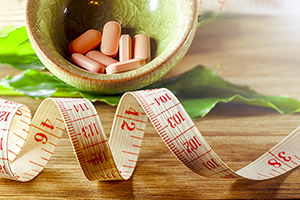



There’s a misconception among low-carb dieters. Many people believe a low-carb diet is much higher in protein. Folks are opting for “lean” protein like sirloin steak and grilled chicken breast, keeping fattier portions like rib eye and dark meat poultry to a bare minimum. Many are even instructed to do so.
I am here to tell you the low-carb diet is not a high-protein diet. It’s a high-fat diet. The very low-carb ketogenic diet is high in fat. It has to be in order to facilitate lipolysis/ketosis, our primary and preferred metabolism. In other words, we have to eat fat in order to burn fat.
 In truth, protein intake stays within the 20 to 35 percent range. It’s fat intake that increases as much as 60 to 70 percent, even higher for those with neurological disorders like epilepsy. Need a point of reference? Consider that the Mediterranean diet is 40 percent fat.
In truth, protein intake stays within the 20 to 35 percent range. It’s fat intake that increases as much as 60 to 70 percent, even higher for those with neurological disorders like epilepsy. Need a point of reference? Consider that the Mediterranean diet is 40 percent fat.
Those who find themselves in a weight loss plateau are likely stuck due to overconsumption of protein (barring other reasons for the plateau). That excess protein turns into blood glucose, effectively shifting metabolism out of ketosis. Now we’re back to a mostly blood sugar burning metabolism again.
Those with type 2 diabetes or prediabetes often won’t be able to reduce their blood sugar (or HgbA1c, which is marker of average blood sugar over three months) until increasing consumption of fats and moderating protein intake.
So by incorporating fattier cuts of meat (read: dark meat poultry, skirt steak, organ meats, and stop throwing out those egg yolks!), you’re effectively decreasing the amount of protein to a more moderate level. And the fats inherent in those foods will help to keep you satiated until your next meal, stabilizing your blood sugar.
Added bonus: You’ll get more zinc, selenium and iron.
Double added bonus: Fattier cuts of meat are less acidic than their leaner counterparts. Why? Fats are neutral—neither acidic nor alkalinizing (a topic for an upcoming newsletter).
To your health!
Though we think of declining estrogen as the hallmark of menopause, it's actually common for…

Up to 12 percent of Americans have ulcers at some point in life. Peptic ulcers…
Gallbladder disease is a modern illness. An estimated 20 million Americans have gallbladder disease. The…

This past week we were regaled with headlines like: High levels of niacin may increase…

March is National Nutrition Month and, needless to say, good nutritious food is essential to…

I recently attended the Integrative Healthcare Symposium (IHS), an annual conference held here in Manhattan. The…

Exploring the Healing Power of Herbs with Dr. Bill Rawls, Part 1

Our virtual voicemail is open 24/7, so there's no need to wait to submit your questions for Dr. Hoffman. Leave a message, and you may hear your question featured on the Intelligent Medicine radio program!